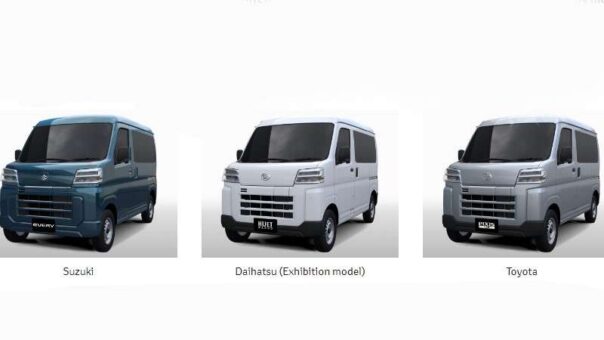Suzuki, Daihatsu, and Toyota are accelerating their efforts to promote sustainable mobility with the planned launch of electric mini-commercial vans in the fiscal year 2025.
This joint venture brings together Suzuki and Daihatsu’s expertise in the mini-vehicle segment with Toyota’s cutting-edge battery-electric technology, aiming to revolutionize last-mile delivery solutions.
The upcoming battery-electric mini-vans will be engineered to meet the evolving needs of the logistics sector. With a specialized Battery Electric Vehicle (BEV) system, these vehicles will provide an eco-friendly alternative for commercial users, particularly businesses engaged in urban deliveries.
The collaboration is further strengthened by the involvement of Commercial Japan Partnership Technologies Corporation (CJPT), which has played a crucial role in ensuring that the electric mini-vans align with the efficiency, affordability, and reliability standards required for commercial applications.
Commitment to Carbon Neutrality
This initiative is a major step towards achieving carbon neutrality, as Suzuki, Daihatsu, and Toyota strive to reduce the environmental impact of commercial transportation.
By introducing these all-electric mini-vans, the automakers are addressing the growing demand for sustainable logistics solutions while supporting global climate goals.
The new electric models are expected to offer lower operational costs, reduced emissions, and enhanced efficiency, making them an attractive option for businesses looking to transition to greener transportation.
The increasing demand for environmentally friendly commercial vehicles, coupled with stringent emission regulations worldwide, has pushed automakers to accelerate their electric mobility strategies.
Suzuki and Daihatsu’s dominance in the mini-car market makes them well-positioned to introduce practical and cost-effective electric models, while Toyota’s advanced electrification technology ensures high performance and reliability.
Transforming the Future of Commercial Transportation
With the 2025 launch approaching, Suzuki, Daihatsu, and Toyota are set to redefine urban delivery operations by providing an innovative and sustainable alternative to traditional gasoline-powered vans.
These electric mini-vans are expected to feature optimized battery performance, fast charging capabilities, and practical cargo space, ensuring they meet the rigorous demands of the logistics industry.
As businesses worldwide seek greener fleet options, this initiative is poised to play a key role in the transition towards zero-emission commercial transportation. By merging their expertise, these Japanese automakers are not only addressing current market needs but also setting a new standard for the future of sustainable mobility.
The 2025 launch of these electric mini-vans marks a pivotal milestone in commercial vehicle electrification, paving the way for widespread adoption of eco-friendly transportation solutions.
